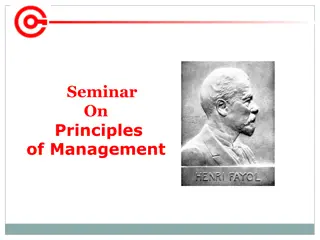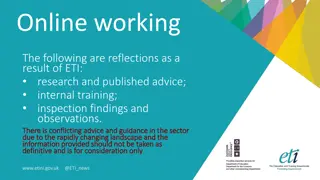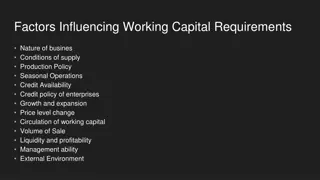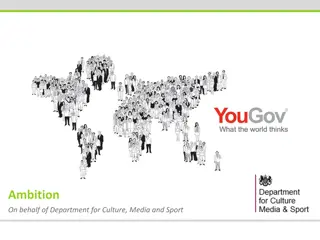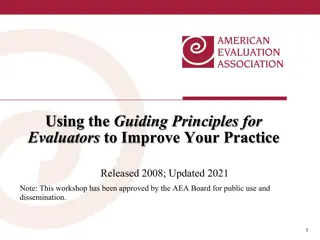Troubleshooting 192.168.188.1 Not Working: Common Causes and Solutions
192.168.188.1 Not Working? Don\u2019t Panic, We\u2019ve Got This! This troubleshooting guide aims to explore the top reasons behind such errors and provide solutions to rectify them.\n\nFor a detailed guide: https:\/\/1921681881.com\/how-to-fix-1921681881-not-working\/
1 views • 2 slides
Using flexible retirement to support retention
New retirement flexibilities in the NHS focus on options like Retire and Return, Partial Retirement, and breaks in service to allow staff to continue working while accessing pension benefits. Discussions on reducing pensionable pay and embracing flexible working for employees in later career stages
0 views • 14 slides
Effective Working Capital Management in Business
Working capital management is crucial for businesses to optimize cash flow and ensure operational efficiency. It involves balancing current assets and liabilities, with a focus on accounts payable, accounts receivable, inventory, and cash. Proper management of working capital is essential for busine
1 views • 9 slides
Principles of the Ghana Civil Service Code of Conduct
The Code of Conduct for the Ghana Civil Service, outlined by Elizabeth Obeng-Yeboah, emphasizes principles such as abiding by the constitution and laws with dignity, integrity, and professionalism. It sets standards for conduct, avoiding conflicts of interest, maintaining political neutrality, and u
1 views • 34 slides
Factors Influencing Working Capital Management
Factors influencing working capital include the nature and size of the business, demand of creditors, cash requirements, time for manufacturing goods, volume of sales, terms of purchases and sales, and the business cycle. The nature of the company, creditor demands for security, cash needs, and the
1 views • 7 slides
Working Group on Inclusive and Accessible Teaching and Learning
A working group at Skidmore College is focused on inclusive teaching and learning, with projects led by faculty members aiming to improve equity, diversity, and inclusion outcomes through data-informed decision-making. The group has identified guiding principles for creating effective learning envir
10 views • 6 slides
Academic Freedom and Shared Governance in Higher Education
Academic Freedom and Shared Governance are foundational principles advocated by the American Association of University Professors (AAUP) to ensure educators have the freedom to explore, research, teach, and discuss without censorship. These principles empower educators to enhance student learning an
0 views • 9 slides
Essential Principles of Management Discussed in Seminar
Explore the foundational principles of management discussed in a seminar on principles of management. Delve into topics such as division of work, authority, discipline, unity of command, and unity of direction as outlined by Henri Fayol. Gain insights into the importance of these principles for effe
0 views • 22 slides
How to Resolve QuickBooks Stopped Working, Not Opening, or Not Responding_ A Comprehensive Guide
If you are experiencing issues with QuickBooks not working, opening, or responding? Our comprehensive guide provides effective solutions to resolve these common problems. Learn step-by-step methods to troubleshoot and fix QuickBooks when it stops working, fails to open, or becomes unresponsive. From
1 views • 4 slides
Understanding the Changes - Flexible Working Right Request Webinar
Join the webinar on the upcoming changes regarding the right to request flexible working. Featuring speakers from CIPD, Department for Business and Trade, and E.ON UK, discussing important topics. Discover resources for COVID-19 support, well-being, and flexible working guidelines. Participate in th
0 views • 7 slides
International Law of War: Nuremberg Principles and Accountability
The Nuremberg Principles, derived from the trials of Nazi officials for war crimes, establish accountability in international law. These principles hold individuals responsible for committing acts considered crimes under international law, regardless of their position or orders received. The assumpt
2 views • 22 slides
Promoting Ethical Principles in Social Science Research
Explore the challenges and strategies for translating and applying ethical principles, especially in emergency contexts. Learn key questions in social science research and how to ensure information contributes to community actions. Understand the importance of considering ethical principles in all w
0 views • 21 slides
Understanding the Basics of Solar Cells: Types, Materials, and Working Principles
Solar cells, also known as photovoltaic devices, convert light energy into electrical energy through the photovoltaic effect. They consist of different generations with varying materials such as crystalline silicon, cadmium telluride, and gallium arsenide. Learn about the construction, working princ
8 views • 32 slides
Overview of Working Capital Management in Financial Management
Working capital management involves strategic decision-making regarding a company's current assets and liabilities to optimize liquidity, profitability, and risk. This process includes understanding working capital concepts, financing current assets, managing liability structure, and maintaining the
1 views • 26 slides
Collaborative Teamwork Guide for Effective Ways of Working
Utilize the Team Ways of Working guide to enhance collaboration, inclusivity, and effectiveness within your team, whether working in-person or remotely. Develop a team plan together, led by the team leader or manager, to ensure equal participation and drive team belonging. Consider virtual ways of w
2 views • 6 slides
Understanding Rectifiers: Types and Working Principles
A rectifier is a crucial electrical device that converts AC to DC, allowing current to flow in only one direction. Explore the different types of rectifiers like half-wave and full-wave, along with their working principles and efficiency considerations. Dive into the explanation of rectification pro
0 views • 15 slides
Understanding Temperature and Friction in Metal Forming Processes
Metal forming processes are influenced by temperature and friction. At different temperature ranges, such as cold, warm, and hot working, the mechanical properties and forming behaviors of metals vary significantly. Cold working offers advantages like higher accuracy and strength, while warm working
0 views • 7 slides
Managing Working Hours: Importance & New Guidelines for Companies
Research has shown that working over 48 hours per week negatively impacts workers' health, productivity, and well-being. The revised ETI Base Code clause on working hours aims to provide better understanding and management of working hours, ensuring compliance with national laws and international la
0 views • 15 slides
Study Guide for Principles of Management Course at Africa Research University (ARU)
Welcome to Africa Research University (ARU)! This study guide is designed to help you navigate through the Principles of Management course (Course Code: PRM4) at ARU. It provides an introduction to the course content, emphasizing the importance of developing management skills to effectively lead and
1 views • 40 slides
Online Working Safeguarding Principles During the COVID-19 Pandemic
In the midst of the changing landscape of online working, this reflection discusses key principles for safeguarding learners during the COVID-19 pandemic. Emphasizing the importance of protecting learners from harm, the guidance highlights the need for clear protocols, parental consent, and regular
0 views • 14 slides
Key Principles of Insurance Explained with Visuals
Understanding the principles of insurance is crucial for both insurance seekers and companies. The principles include Utmost Good Faith, Insurable Interest, Indemnity, Contribution, and Subrogation. These principles ensure transparency, fairness, and protection for policyholders. Visual representati
0 views • 6 slides
Principles of Training: Overload, Specificity, and Progression
Principles of training encompass overload, specificity, and progression. Overload requires doing more than usual, specificity involves tailored activities, and progression ensures gradual advancement. These principles are vital for improving fitness levels safely and effectively, emphasizing the nee
8 views • 17 slides
Understanding Thinking & Working Politically: Key Concepts and Principles
Explore the concept of Thinking & Working Politically (TWP) through its core principles: strong political analysis, insight, understanding, local context appreciation, flexibility, and adaptability in program design. Learn why poor policies persist, the necessity of political thinking, and how TWP c
0 views • 16 slides
Effective Partnership and Mutual Accountability in Nutrition Clusters
The content discusses the minimum commitments needed for participation in Nutrition Clusters, explains the Principles of Partnership, and explores how these principles can enhance coordination and accountability to affected populations. It emphasizes partner commitments, such as leadership, mainstre
0 views • 7 slides
Factors Influencing Working Capital Requirements and Management
Factors such as nature of business, supply conditions, production policy, seasonal operations, credit availability, growth, and external environment influence the working capital needs of a business. Factors like credit availability, seasonal sales fluctuations, and liquidity affect the amount of wo
0 views • 11 slides
Family Support Policies and Flexible Working Policy at The School of Biological Sciences
The School of Biological Sciences at the University of Edinburgh has local policies supporting family needs and flexible working arrangements. These policies include parental leave cover, workload expectations upon return from parental leave, and flexible working options. The school ensures that sta
0 views • 7 slides
Overview of Fundamental Principles of Space Law and Outer Space Treaties
The content discusses the fundamental principles of space law highlighted at the United Nations Space Law Conference 2020, focusing on key treaties such as the Outer Space Treaty of 1967 and associated rights, duties, and obligations of states in space exploration and use, including non-appropriatio
0 views • 16 slides
Overview of Directive Principles of State Policy in Indian Constitution
Directive Principles of State Policy (DPSP) in the Indian Constitution encompass social, economic, and political programs aimed at realizing ideals of justice, liberty, equality, and fraternity. They are non-justiciable but guide the state in legislative matters. Classified into Socialistic, Gandhia
0 views • 24 slides
Evaluation of Collective Reduction in Working Time: Call for Proposals 2023
This call for proposals aims to evaluate the effects of a collective reduction in working time on various aspects such as wellbeing, productivity, employment, and climate. The project proposes a pilot experiment where firms voluntarily introduce a four-day workweek without loss of salary. The method
0 views • 8 slides
Insights into ACO Benchmarking and Working Patterns Survey Findings
Uncover key insights from the ACO Benchmarking and Working Patterns Survey, including demographic information on types of charities and annual income percentages of respondents, chief executive and finance leaders' salary levels based on organization revenue, employee benefits offered, and working p
0 views • 9 slides
Insights on Ambition, Flexibility, and Working Arrangements
The Department for Culture, Media, and Sport conducted surveys on ambition levels and perceptions towards flexible working among men and women in the UK. Findings reveal varying opinions on ambition levels, with a significant portion agreeing that women with flexible working arrangements have simila
0 views • 16 slides
Understanding FAIR Principles in Biomedical Research
The FAIR principles - Findable, Accessible, Interoperable, and Reusable - provide a framework for ensuring scientific data in biomedical research is managed and shared effectively. This informative session delves into the theory and practice of FAIR principles, emphasizing the importance of data qua
0 views • 28 slides
The FAIR Principles for Data Management and Stewardship
Embrace the FAIR principles - Findable, Accessible, Interoperable, Re-usable - for effective scientific data management and stewardship. Learn how annotations enhance data FAIRness and the key attributes of each principle. Dive into the high-level guiding principles that ensure data is globally uniq
0 views • 25 slides
Understanding the Guiding Principles for Evaluators
This content provides insights into the Guiding Principles for Evaluators, including their history, assumptions, and key principles such as Systematic Inquiry and Competence. The workshop aims to increase knowledge about ethical evaluation practices and stimulate discussions within the evaluation co
0 views • 22 slides
Evolution of GAC Operating Principles: A Working Group Initiative
The working group, led by representatives from GAC members and observers, aims to enhance the effectiveness and efficiency of the Governmental Advisory Committee (GAC) within ICANN. It focuses on reviewing and recommending changes to GAC operating principles, restructuring processes, and clarifying
0 views • 10 slides
Guiding Principles for GETSI/INTEGRATE Webinar – Materials Development and Goals
The webinar presented by David Steer from the University of Akron focuses on guiding principles for material development in the context of GETSI/INTEGRATE modules. It outlines goals for the session, including discussing components of the guiding principles, examples of meeting those principles, and
0 views • 13 slides
Understanding Henri Fayol's 14 Principles of Management
Henri Fayol, the Father of Modern Management, introduced 14 Principles of Management in 1916, outlining essential guidelines for effective management. These principles cover areas such as division of work, authority and responsibility, discipline, unity of command, and unity of direction. By followi
0 views • 19 slides
Principles of Management: Understanding Henri Fayol's 14 Key Principles
Explore the foundational principles of management through the lens of Henri Fayol's 14 key principles, which offer valuable insights into managerial decision-making and organizational interactions. Delve into the history of Henri Fayol, his contributions to management theory, the concept of authorit
0 views • 14 slides
Legal Principles of Insurance
The legal principles of insurance include indemnity, insurable interest, subrogation, and utmost good faith. These principles ensure fair compensation, financial risk protection, and honesty in insurance contracts. Understanding these principles is crucial for both insurers and policyholders to navi
0 views • 18 slides
Enhancing Family Wellbeing Through Flexible Working Policies: An In-Depth Analysis
This presentation by Dr. Khalid Al Naama explores the impact of flexible working arrangements on family relations from a policy perspective. It delves into the various types of flexible working arrangements, their benefits for both parents and employers, and the challenges faced in achieving a bette
0 views • 12 slides







